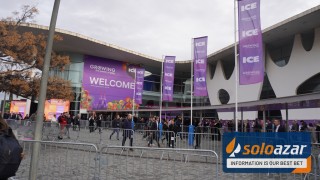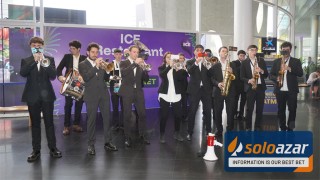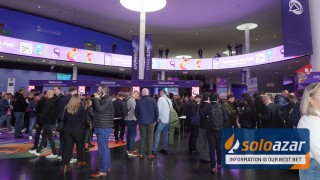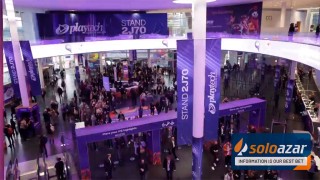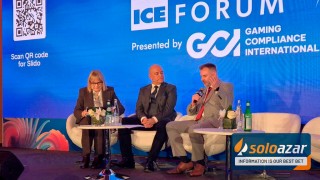Regulation and Enforcement at SiGMA Malta 2024
2 minutos de lectura
(Malta, SoloAzar Exclusive) - SoloAzar shares the most significant details of the panel ‘Article 56A of the Maltese Gambling Act and Challenging the Enforcement of Foreign Judgments in Malta’, which took place during the SIGMA Europe trade fair in Malta from 11 to 14 November.
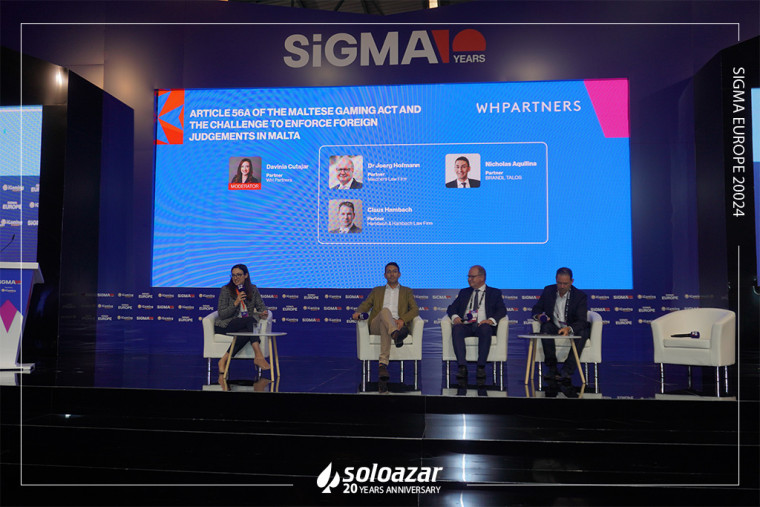
The session was moderated by Davinia Cutajar, who guided the discussion with key questions to experts such as Nicholas Aquilina, Dr. Joerg Hofmann and Claus Hambach.
The panel started by briefly explaining about article 56a of the Maltese Gaming Act, which is a clause preventing the recognition of foreign judgments against companies licensed to operate in the Maltese gaming sector.
The first to be asked for his opinion on this issue was Nicholas Aquilina, who began by explaining that class action litigation in Austria faced three main effects. Firstly, he explained that the time needed to process these lawsuits was extended, directly affecting the return on investment expectations of the commercial funders backing the cases. Secondly, he pointed to the emergence of alternative business models, such as the purchase of sports players, which, while streamlining processes, reduces the payments that players receive compared to traditional procedures. Finally, he stressed that both funders and lawyers have developed more creative approaches, targeting lawsuits against legal entities involved in the operations, including company directors, to put more pressure on operators.
The moderator, Davinia Cutajar, complemented these observations by noting that, in Malta, there has been an increase in pending cases related to such litigation, some accumulating a backlog of more than two years. This phenomenon reflects a common challenge in Europe to enforce foreign judgments and resolve cases within a reasonable time.
The panel continued with the intervention of German lawyer Joerg Hofmann, who addressed the impact of article 56A of the Malta Gaming Act in Germany and the legal differences between the sports betting sector and the casino sector.
Hofmann noted that the article has had a significant impact on legal procedures in Germany, creating conflicts between national and international regulations. He explained that domestic jurisdictions in some countries, such as Germany, do not fully recognize licenses issued in Malta, arguing that they do not align with local public policy. This has led to legal tensions between Maltese operators and German courts, which have gone so far as to question the validity of Maltese licenses at the European level.
In relation to sports betting, Hofmann stressed that in 2012 Germany tried to implement a licensing system for sports betting operators, but it collapsed due to litigation. The German Court of Justice ruled that the regime did not meet the standards of transparency and consistency, which weakened the German state's position as a monopoly in this sector until 2020. He also pointed out that, although the regulations are similar for casinos, the impact of the legal decisions has been different, as these establishments face fewer regulatory challenges compared to sports betting operators.
On the other hand, Claus Hambach explained that currently many casino-related cases have been suspended and referred to the Court of Justice of the European Union (CJEU). This court is due to issue a ruling on the compatibility of German regulations with European regulations, a ruling that could redefine the legal landscape on the continent. According to Hambach, the current uncertainty poses new threats to the gambling industry, especially in an environment where players seem to have more judicial backing.

Hambach also explained that, in Germany, there has been no direct challenge to this article, as it has no immediate impact on German courts. However, he noted that there have been indirect challenges, such as requests to the Department of Justice to investigate its legality. These requests, while important, can take years to process due to the complexity of the procedures and competences involved. In addition, he mentioned that the Review Commission in Germany has tried to exert pressure on operators to comply with court rulings, but, so far, such strategies have been rejected, setting a precedent in this context.
Finally, Nicholas Aquilino highlighted similarities in the regulatory approach in Austria, noting that Austria does not have a specific regulator due to its monopolistic system. Despite the liberalisation of sports betting, there have been no concrete challenges to Article 56A either. However, he emphasised that the Austrian monopoly faces constant legal pressure from operators arguing its incompatibility with the market freedoms established by the European Union. Nicolas also foresees that in the coming months further challenges could arise from the political and judicial sphere, especially in relation to the actions taken by Malta.
The panel concluded by emphasising the need for greater coherence between European and national regulations. Furthermore, it was highlighted that Malta's public policy, underpinned by the Defence Act, could strengthen its position in the face of regulatory tensions. Experts agreed that dialogue at the European level will be key to address these legal challenges and ensure a stable regulatory environment for both operators and players.
Categoría:Events
Tags: Sin tags
País: Malta
Región: EMEA
Event
ICE Barcelona 2026
19 de January 2026
Tomás Galarza: "This edition of ICE was especially relevant for ASAP"
(Barcelona, SoloAzar Exclusive). Following his participation in ICE Barcelona 2026, Tomás Galarza, a Political Science graduate and foreign trade expert at ASAP, shares his insights on global trends, international business opportunities, and the company's strategic priorities for this year.
Wednesday 04 Feb 2026 / 12:00
Win Systems Expands Presence in Spain and Highlights Route Operations at ICE 2026
(Barcelona).- At ICE 2026 in Barcelona, Win Systems showcased its innovative gaming solutions for the Spanish market, emphasizing Player Tracking, Win Pay, and route operations to enhance operator performance and player engagement.
Wednesday 04 Feb 2026 / 12:00
Spintec Showcases Next-Generation Electronic Table Games at ICE Barcelona 2026
(Volcja Draga).- Spintec reinforced its position as a leading innovator in electronic table games during ICE Barcelona 2026, standing out within The Merkur Group’s expansive exhibition through a diverse portfolio of immersive products focused on player comfort, dynamic gameplay and efficient use of gaming floor space.
Tuesday 03 Feb 2026 / 12:00
SUSCRIBIRSE
Para suscribirse a nuestro newsletter, complete sus datos
Reciba todo el contenido más reciente en su correo electrónico varias veces al mes.











